Dec 18, 2024 – Religious Leaders’ Meeting, Weekly Dharma Assembly, New Year’s Special Broadcast Recording
Hello. Today, Sunim attended a meeting with religious leaders, conducted a live Weekly Dharma Assembly, and then recorded an appearance on a special New Year’s broadcast.
After completing his early morning practice and meditation, Sunim headed to the Jungto Social and Cultural Center. The priest, minister, bishop, and spiritual leader all arrived at the Jungto Social and Cultural Center, and the meeting began with a meal together. After the meal, they moved to the Peace Foundation’s conference room to engage in more in-depth discussions.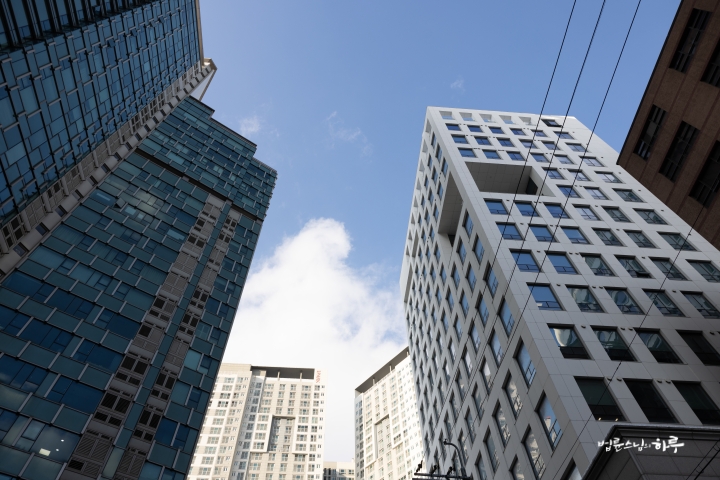
First, they watched a video of the pilgrimage organized by the religious leaders’ group from the 25th to the 27th of last month to commemorate the 200th anniversary of the birth of Suun Choe Je-u Great master.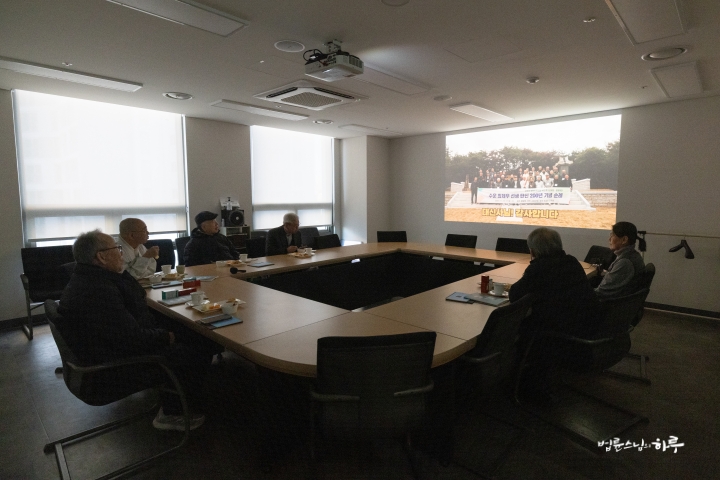
Today marks the last religious leaders’ meeting of the year. Following this, Park Nam-soo, the former spiritual leader of Cheondogyo and the chairperson of the religious leaders’ meeting, shared some closing remarks for the year.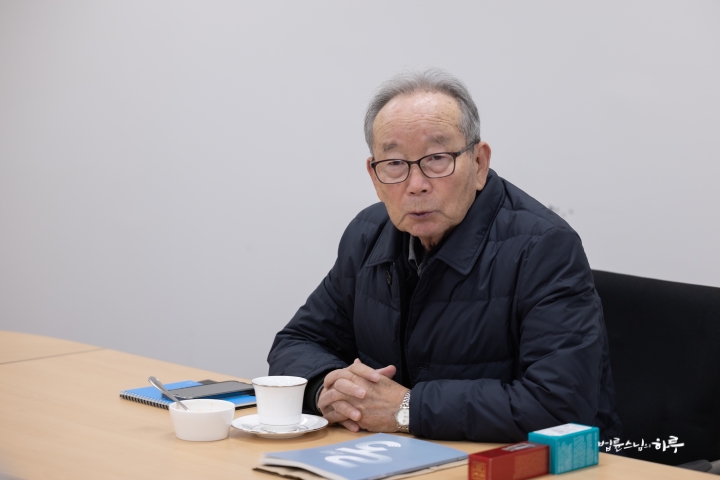
“I believe the best thing we did this year was the pilgrimage we took together to commemorate the 200th anniversary of Choe Je-u Great master. It was such a meaningful event that I thought perhaps I had lived to this age just to witness this wonderful sight. Moreover, it’s fortunate that the situation where martial law was declared, which could have set South Korea back 40 years, ended without major incident. Looking at the state of affairs, it seems this year was not just eventful, but rather tumultuous. I hope that in the new year, our country will become what we all wish for.”
Sunim then spoke about the current state of affairs.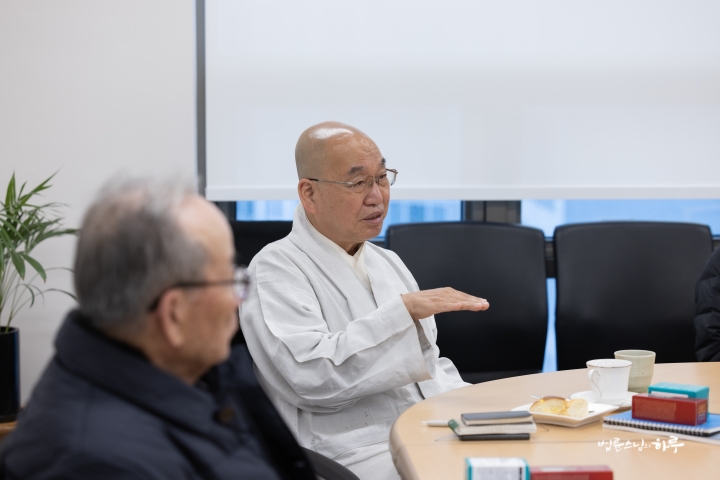
“Right now, the entire nation is rising up and voicing their opinions against unjust actions, so I wonder if there’s a need for the religious leaders’ group to step forward. Many of you are already speaking out individually. If the situation doesn’t calm down as the people wish, then we might need to step up at that time.
Our primary concern has been the issue of the war crisis on the Korean Peninsula, but it seems that risk has significantly decreased now. First, with Trump’s election as president, it’s expected that he will end the war between Russia and Ukraine and initiate dialogue between North Korea and the US. Second, with President Yoon Suk-yeol’s impeachment, the possibility of heightened tensions in South Korea has greatly diminished. Third, since North Korea has participated in the war between Russia and Ukraine, the likelihood of military provocation in Korea seems very low. While the tense situation on the Korean Peninsula hasn’t been completely resolved, I think the concerns have been somewhat alleviated. Particularly, President Trump has nominated Wing, who was in charge of practical matters during the previous North Korea-US dialogue, as the deputy national security advisor to the White House. Since he has appointed someone who has already engaged in dialogue with North Korea, it’s expected that future conversations between the US and North Korea will go smoothly. Of course, if the North Korea-US dialogue faces difficulties, we should play a role in advising how to facilitate smooth communication.
State of Emergency Caused by the Declaration of Martial Law
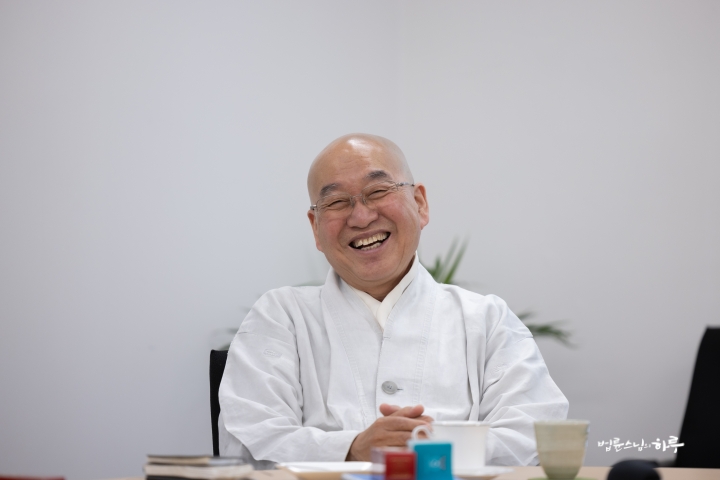
To summarize the current situation in South Korea in one sentence: it’s not that martial law was declared due to a national emergency, but rather a national emergency arose because martial law was declared. Especially with the change in the international environment due to Trump’s re-election as president, at a time when normal diplomacy between nations has become very important, there’s a void in the president’s diplomatic role, which is likely to result in significant losses. Additionally, there are enormous economic interests at stake, including tariff issues and the cancellation of tax exemptions for Korean companies that have invested in the US. With a void in the president’s role to resolve these issues, economic losses are expected to be substantial. Until now, while the macroeconomy was barely maintaining the status quo, the economy for ordinary citizens had become very difficult. Now, even the macroeconomy is facing a considerable crisis. It seems that the national losses incurred due to this martial law situation will be very significant.
To reduce these economic losses, domestic politics must stabilize, which requires dialogue between the ruling and opposition parties. However, the ruling party is too focused on protecting its own interests, and the opposition party, thinking it has now seized an opportunity, is pushing too hard against its opponents. I’m concerned that if this continues, we might fall back into a vicious cycle of political strife. The ruling and opposition parties need to stabilize national affairs and cooperate to respond quickly to the rapid changes in the international situation for the sake of the country and its people. While the legal deadline for the impeachment process is six months, it’s necessary to shorten this period if possible to avoid prolonging this confusion.
The Misfortune Caused by the President’s Excessive Authority
Above all, measures must be taken to prevent such incidents from recurring in the future. The repeated occurrence of these incidents is ultimately a problem of the power structure. Because the president’s authority is too extensive, all responsibility falls on the president, which is why these tragic situations have continued to occur.
First, the president’s authority should be reduced, and some of that authority should be transferred to the prime minister and cabinet members, allowing each minister to have authority over their duties and take responsibility if things go wrong. Also, if things become untenable, the prime minister should take responsibility and step down. Only by changing to such a system can we prevent the recurrence of these situations.
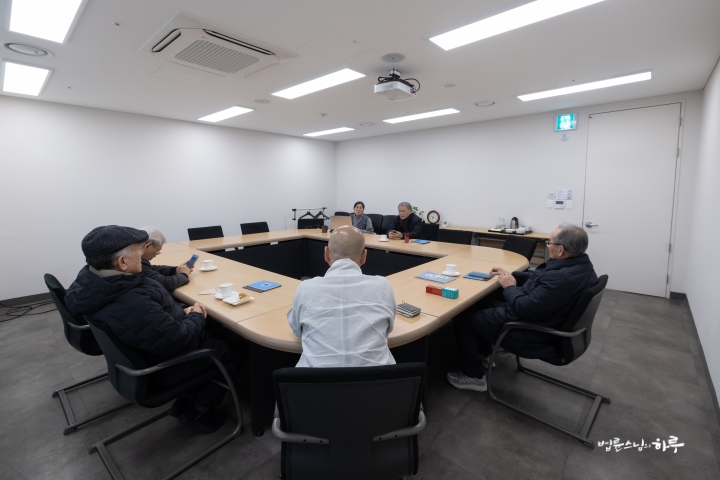
Second, the excessive central power should be distributed to local governments. In our country, the National Assembly holds all legislative power, the government holds all administrative power, and the same goes for the judiciary. Therefore, local autonomy should be expanded through decentralization.
Third, the winner-takes-all structure in the electoral system needs to be changed. The winner-takes-all structure distorts the will of the people. In a 49 to 51 voting result, all 49 votes become wasted. To reflect the will of the people in representative bodies in proportion to the voting ratio, the election law must be amended to change the winner-takes-all structure. There’s an option to move to a multi-member constituency system, but doesn’t that have its own side effects? And there’s an option to strengthen the single-member district system and proportional representation, but this option is practically difficult because the public opposes increasing the number of lawmakers, and lawmakers oppose losing their local constituencies.
However, given the current state of emergency, I think such changes might be possible. If we can bring about changes like reducing presidential authority, strengthening local autonomy, and improving the winner-takes-all electoral system through constitutional amendments at this opportunity, South Korea could advance to become the 7th Republic. We must ensure that these incidents are never repeated. Cooperation between the ruling and opposition parties is necessary not only to stabilize the current political situation but also to create a new future. So, it would be good if the religious leaders’ group could play a necessary role in turning this crisis into an opportunity for positive change.
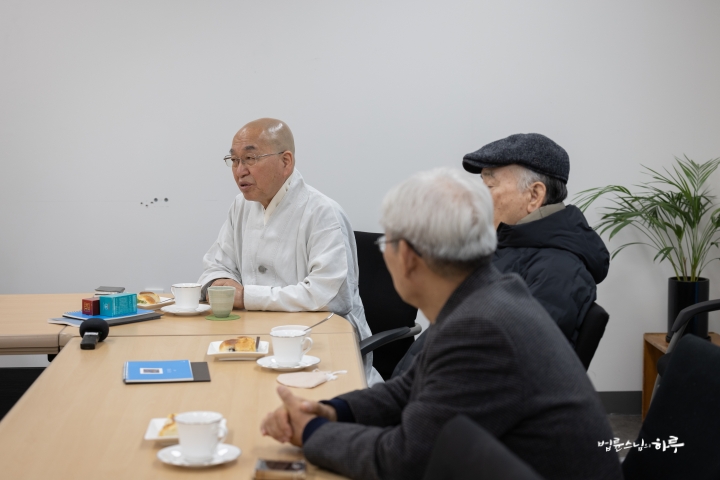
I believe the Constitutional Court’s ruling on the impeachment of the President will ultimately reflect the will of the people. However, with only six justices on the bench, there is a real risk. Even if public opinion is overwhelmingly in favor, a single dissenting vote could lead to dismissal. Despite this risk, given the current overall public sentiment and enthusiasm, I think it would be difficult for the Constitutional Court justices to go against the prevailing tide.
In a word, the current political situation can be described as “fortunate in misfortune.” It’s embarrassing that such an incident occurred in 21st century South Korea. When we consider why this could happen in our country, it ultimately comes down to the division and hostility between North and South Korea. North Korea can always be used as an excuse for such events to potentially occur. However, the fortunate aspect is that while conditions exist for such incidents to happen, the likelihood of them succeeding is very low. This demonstrates the strength of South Korea’s democratic roots. The fact that citizens are all imbued with democratic awareness and actively engage in social media allowed them to mobilize even faster than any military, resulting in this “fortunate in misfortune” outcome. From an international perspective, while there may be some embarrassment about South Korea’s current state, many are praising the Korean people as admirable. The creative protest culture displayed this time has particularly impressed the world. In this way, I believe this incident has shown both sides of the coin.
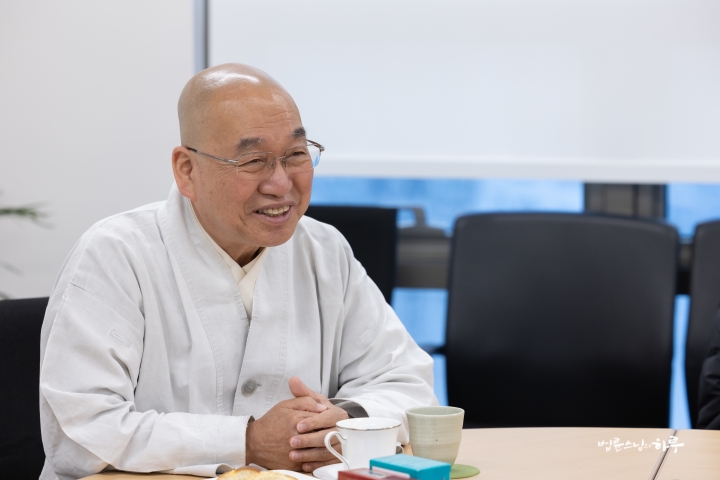
Now, our task is to turn this into an opportunity for crisis to become a blessing. I believe our challenge is to figure out how to make the best of this unfortunate situation. If we can stabilize the government while simultaneously amending the constitution to prevent recurrence and usher in the era of the 7th Republic, I think President Yoon Seok-yeol will have played a significant role in history. If he had proactively made such a proposal himself, he would have become a historical figure, but he didn’t. However, if his actions contrary to this end up bringing about positive results, that will have played a role in history, either. In Buddhism, this is called a ‘reverse bodhisattva.’ It means contributing to setting the world right by taking actions that people criticize. So, I think it would be good to discuss whether we should just observe until February next year or if religious groups should take the lead in raising these issues.”
Naturally, the religious leaders also shared their thoughts on the current political situation. First, Park Nam-soo, the Chief Priest, began speaking.
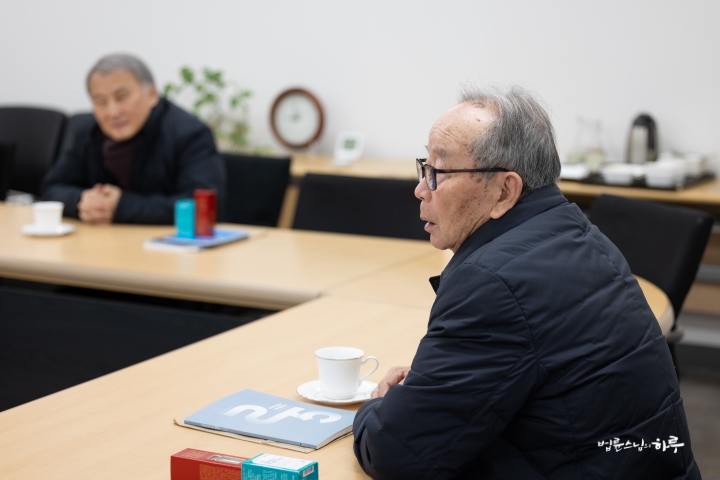
“As Sunim said, our protest culture has developed so much that we could export it worldwide. I went out early in the morning to protest, and I’ve never had to pay for my own coffee. I was deeply moved to see young people in their 20s taking care of the older adults. However, what’s truly regrettable is that politicians are not apologizing to the people and are becoming increasingly stubborn. I wondered what could change if there’s no repentance. Thinking about the future, it’s sad that there are no politicians who can teach morality to the younger generation.”
Next, Bishop Park Kyung-jo shared his thoughts.
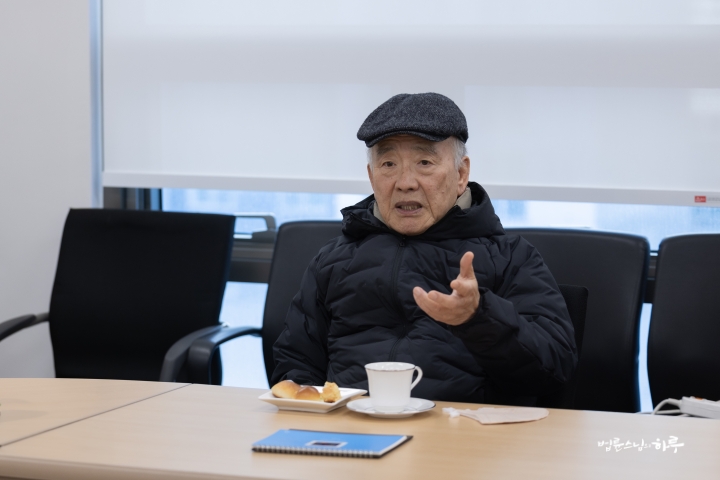
“I felt a lot of hope. I think it’s fortunate that hidden dark thoughts have been revealed. If they hadn’t been exposed this time, who knows what might have happened behind the people’s backs during the remaining term. I believe this incident will serve as a foundation for building a new country. Even in the difficult times when the Donghak Revolution was brutally suppressed, it spread the idea of equality for all and ignited the hearts of the people. The Republic of Korea wasn’t created out of nowhere. It’s a democracy achieved through countless sacrifices, which is why I believe we will wisely overcome this crisis as well.”
Next, Father Kim Hong-jin shared his thoughts on the current situation.
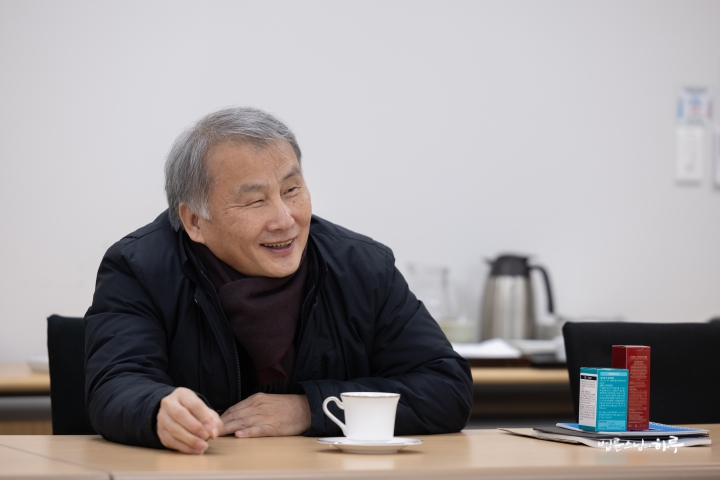
“I think it’s a good thing that the cancerous elements of our society have been exposed. Of course, it will take some time to treat them. Watching this protest culture, I thought that our citizens have acquired a DNA of democracy through numerous historical struggles. It was truly moving to see that even among young people, collective intelligence was at work, and they already knew what was right and wrong through social media. Seeing young people rise up gave me great hope.”
Finally, Kim Dae-sun, the Gyomu, shared his thoughts.
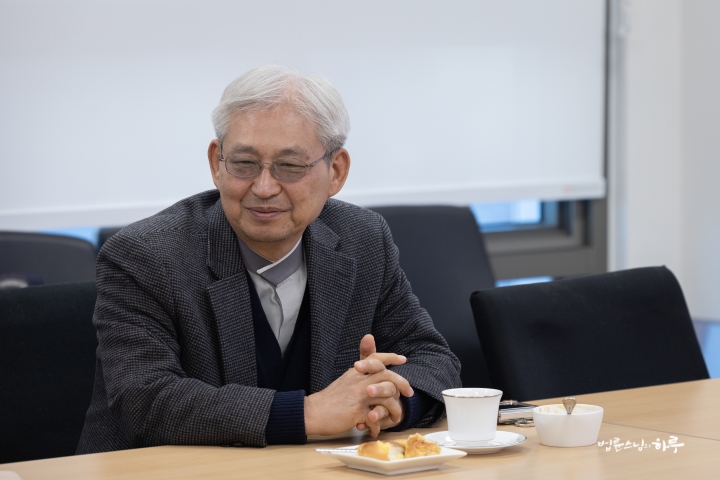
“Your words about it being a blessing in disguise are spot on. If the palace coup had succeeded, there would have been bloodshed. It’s indeed fortunate, but it seems we now have many tasks ahead of us.”
We decided to observe how the current situation unfolds until February next year, and to meet urgently if any unexpected situations arise.
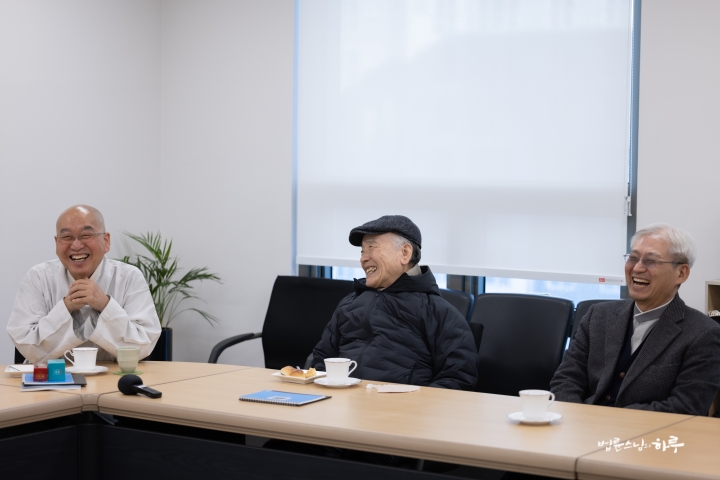
After sharing each other’s thoughts on the current political situation for two hours, the meeting concluded.
After seeing off the religious leaders, Sunim moved to the broadcasting room of the Seoul Jungto Center to conduct a live broadcast of the Dharma Assembly.
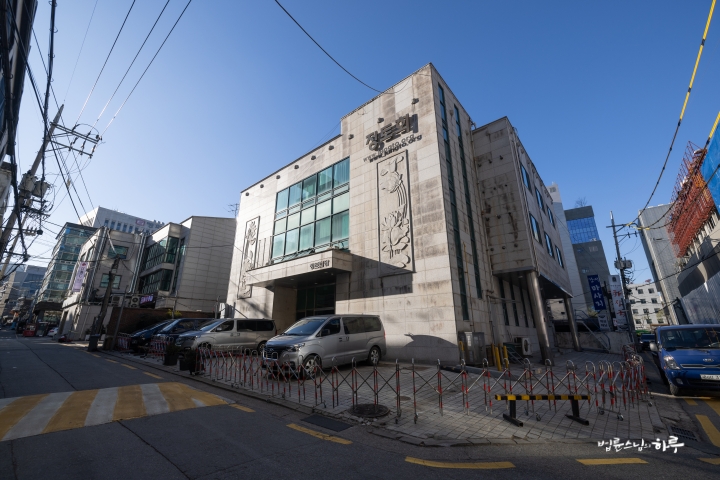
At 10 AM, the live broadcast of the Dharma Assembly began with all Jungto Society members joining the video conference room. Today is the year-end Dharma Assembly to wrap up the year.
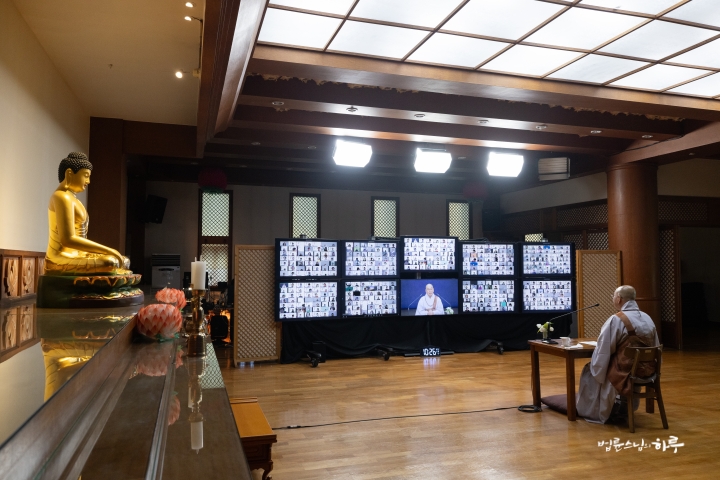
Following the greeting from the President of Jungto Society, we watched videos showcasing the activities of each branch over the past year.
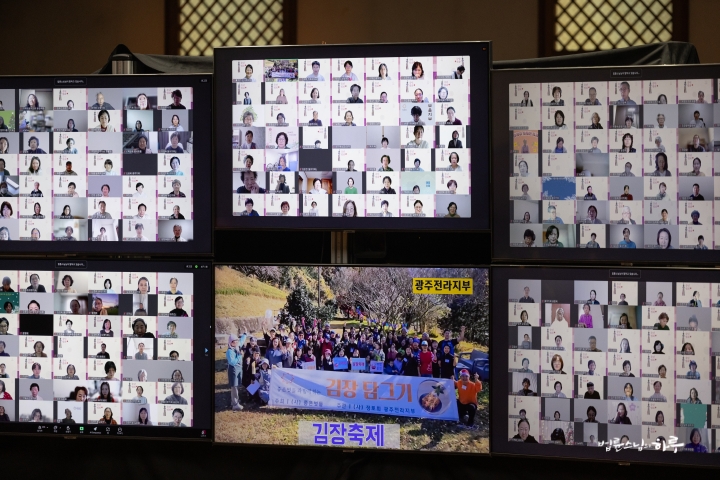
Although there were many activities, the video showed that the June 13th Mass Dharma Assembly remained the most prominent in people’s memories.
Then, Sunim gave a year-end Dharma talk to conclude the year.
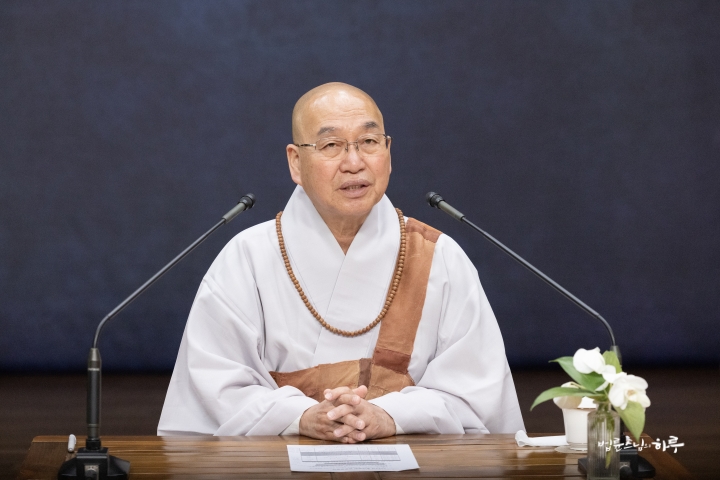
“Thank you all for your hard work over the past year. You have provided all the necessary financial support for our activities through your donations, and you have carried out all the activities yourselves. Jungto Society has come this far thanks to your efforts. I would like to take this opportunity at today’s year-end Dharma Assembly to sincerely thank all of you who have donated and participated in our activities.
Looking back on 2024, I think the most memorable event was the June 13th Mass Dharma Assembly. Despite the difficulties, all members of Jungto Society united their efforts to hold the Mass Dharma Assembly, praying for peace on the Korean Peninsula, national unity, and the continued development of the Republic of Korea in the future. Some of you might think that despite putting in so much effort for the Mass Dharma Assembly, there hasn’t been any significant change. However, it takes time for causes to bear fruit. Whether by coincidence or not, various signs of peace are now appearing, and tensions have eased considerably. The president’s unilateral governance style, which was an obstacle to national unity, is also coming to an end. Although some confusion remains, I believe we will move towards a better path through this process. While extreme confrontation is expected to continue for a while, from a broader perspective, I think we have reached a starting point for a better path as the obstacles to unity have been removed.
This is how we have spent the year 2024 well. I hope that in the new year of 2025, our prayers will be answered. I ask all of you to continue your sincere efforts for the development of our country, our people, and Jungto Society, holding onto this hope.
On the night of the 9th, I flew out and visited Mindanao, Philippines, for four days until the 13th, attending the completion ceremonies of 10 schools. One of the completed schools was a 10-hour round trip walk away, so the JTS Philippines volunteers held the completion ceremony before I arrived in Mindanao. Therefore, I participated in the completion ceremonies of 9 schools. Let’s watch a video of these events together.”
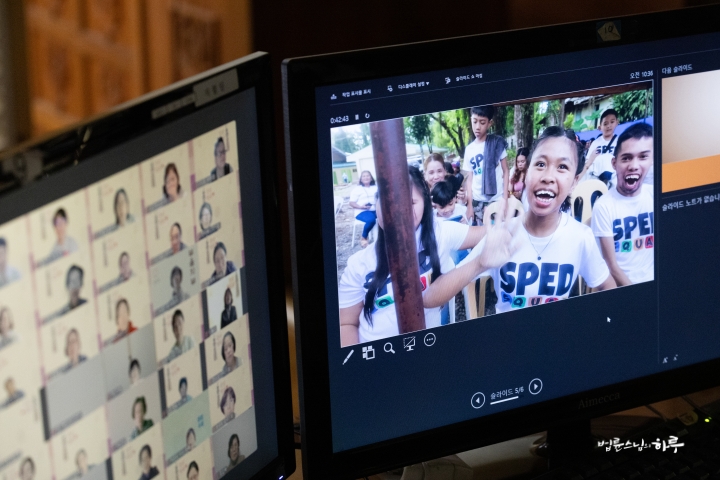
▲ Watch Video
After watching the video, there was time to share reflections on the past year. Anyone could press the raise hand button and share their thoughts about the past year.
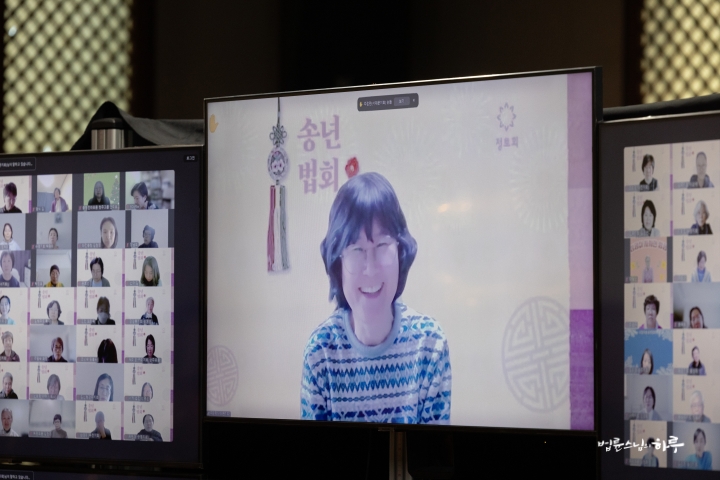
“Looking back on the year, the most rewarding thing was preparing together for the June 13th Mass Dharma Assembly. I’m truly grateful to Sunim for giving us that opportunity.”
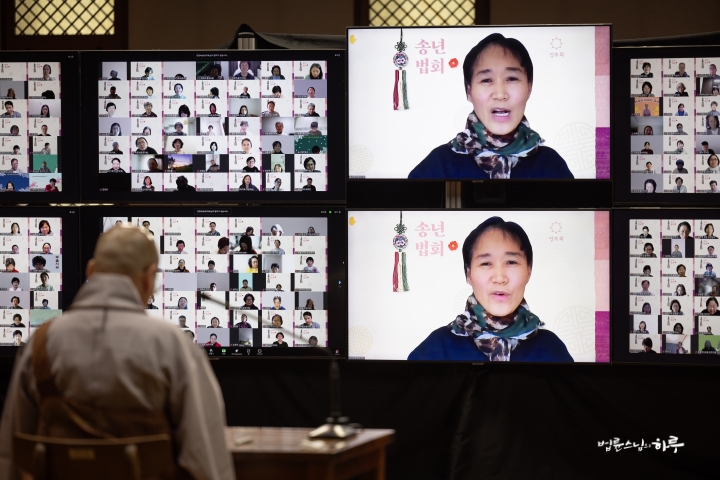
“I was deeply moved while watching the video of the Mindanao school completion ceremony. Seeing Sunim build a school in an impoverished area and the joy of the residents made me realize that our donations have blossomed into beautiful flowers. I will participate more actively next year.”
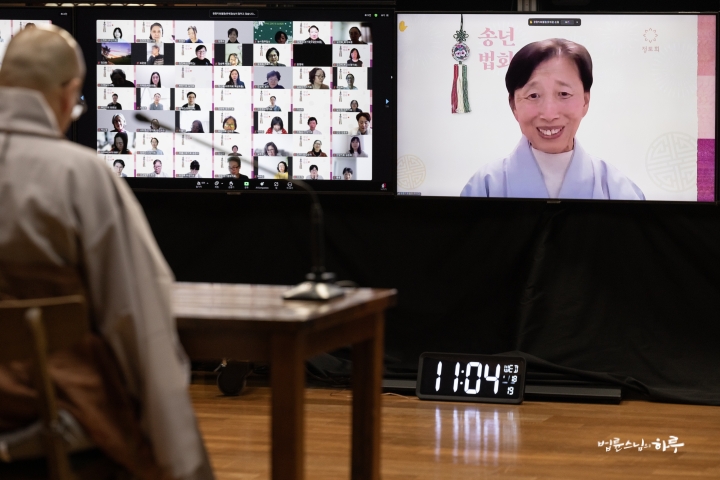
“I’m so grateful to be alive right now. Even though I spent over a year in the hospital after a major accident, thanks to the prayer Sunim taught us – ‘I lived another day’ – I was able to get through the difficult hospital stay with a smile. Thank you.”
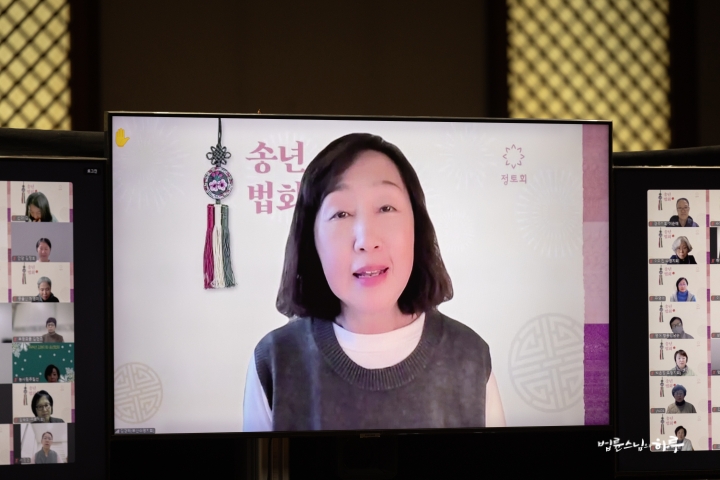
“I was truly moved by the construction of a school for children with disabilities in Mindanao. Seeing children with disabilities, who were previously confined to their homes, come to school and develop social skills by sharing their emotions made me very happy. I felt this was truly a path that benefits both others and oneself, and it gave me hope that we could raise children who support each other through this.”
After listening to all the members’ reflections, Sunim gave some final remarks.
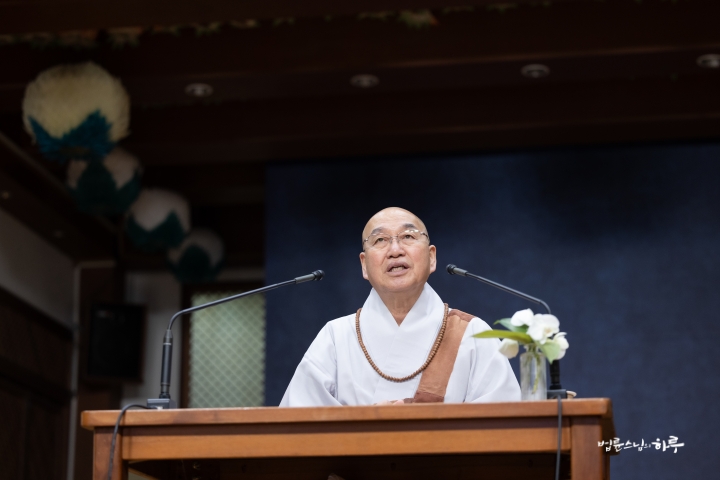
“You all have worked very hard this past year. As the saying goes, ‘Even Diamond Mountain is best viewed after a meal,’ meaning that in the end, only what you’ve eaten remains. Similarly, for practitioners, only practice remains. Material possessions and people all disperse over time. The only thing that truly remains with me is the merit of my diligent practice. So when you wake up in the morning, you should prioritize one hour of practice for yourself above all else. Through practice, practitioners should become beings who move the world, rather than being controlled by it. To do this, we must always view the world from the perspective of an owner. Wherever you go, always approach things from the standpoint of being the owner. This is called ‘sucho jakju’ (being the master wherever you are). In the new year, I hope you all adopt this perspective of sucho jakju and live as the masters of your own lives and of this world.”
After an hour and a half of the year-end Dharma assembly, the live broadcast ended just after 11:30 PM.
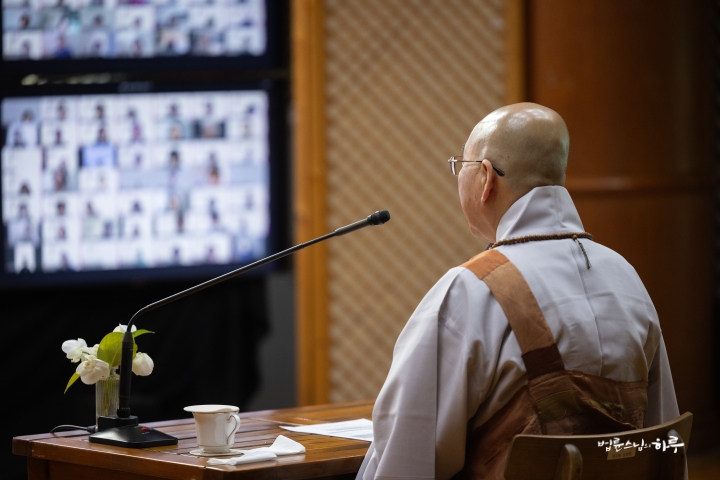
Sunim immediately headed to Samcheong-dong in Jongno-gu, Seoul, to record a TV broadcast. Today, we are scheduled to record a special New Year’s broadcast.
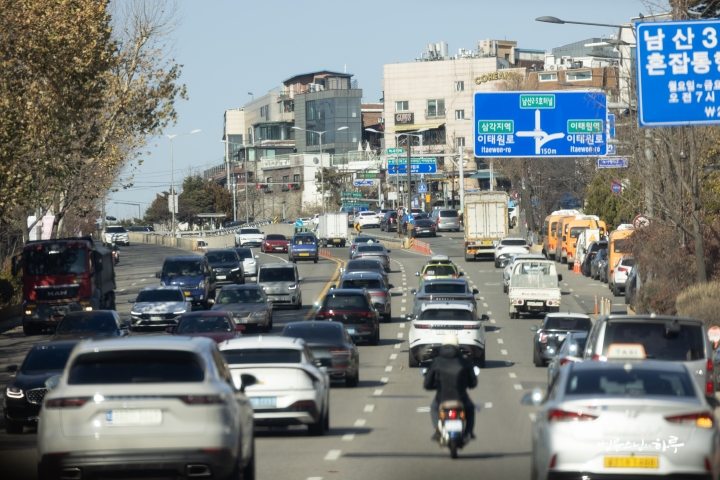
When Sunim arrived at the recording studio, the production staff, including the PD, warmly welcomed him. Dozens of production staff members were waiting in the studio with dozens of cameras set up.
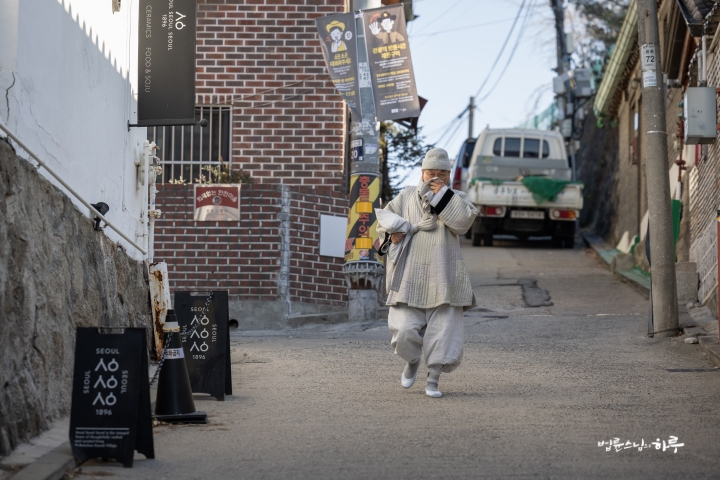
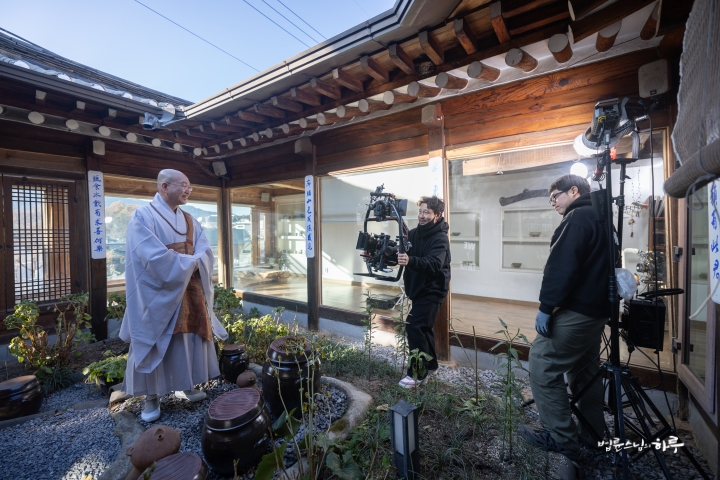
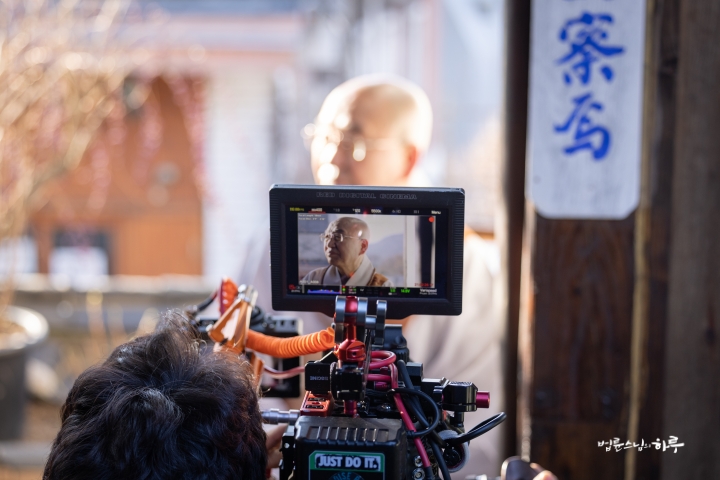
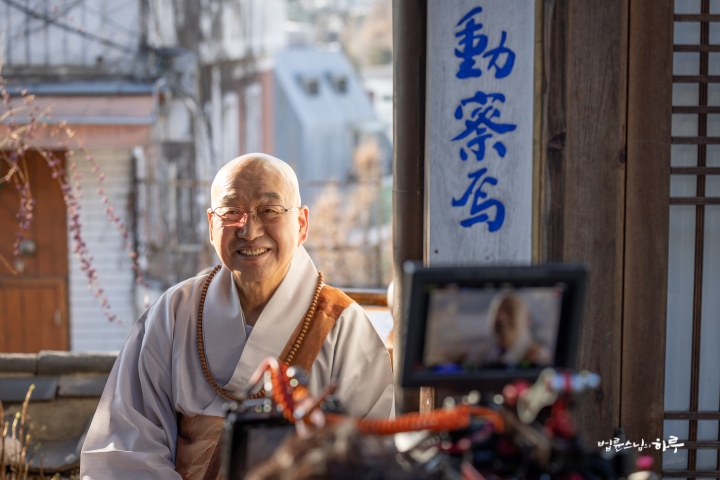
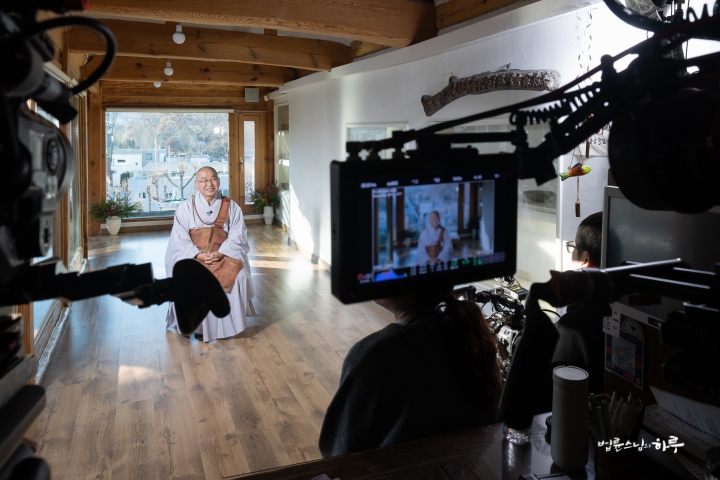
After completing the snapshot photography, Sunim departed from Samcheong-dong and returned to the Seoul Jungto Center.
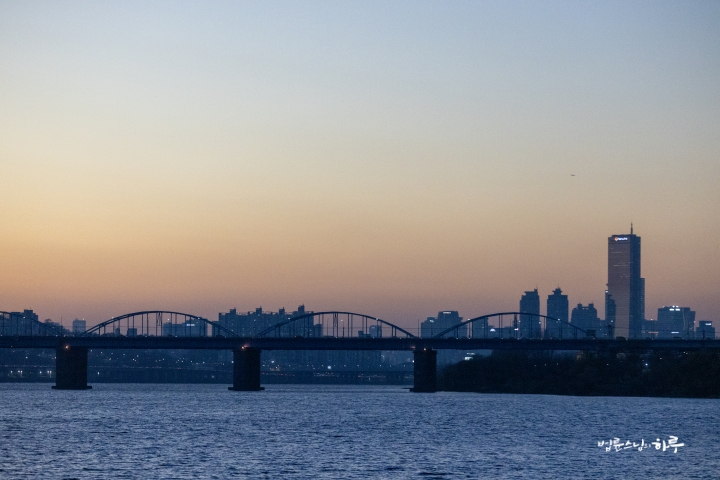
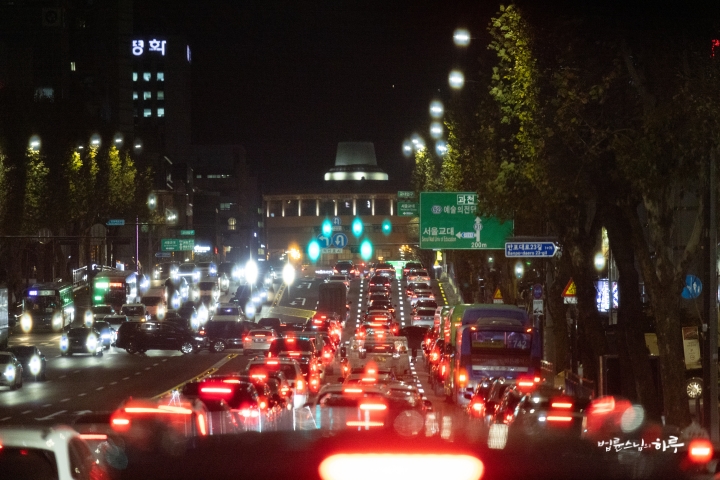
As the sun set, from 7:30 PM, Sunim conducted a live broadcast of the evening practice assembly for Jungto Society members. Like the morning session, it was held as a year-end Dharma assembly to conclude the year.
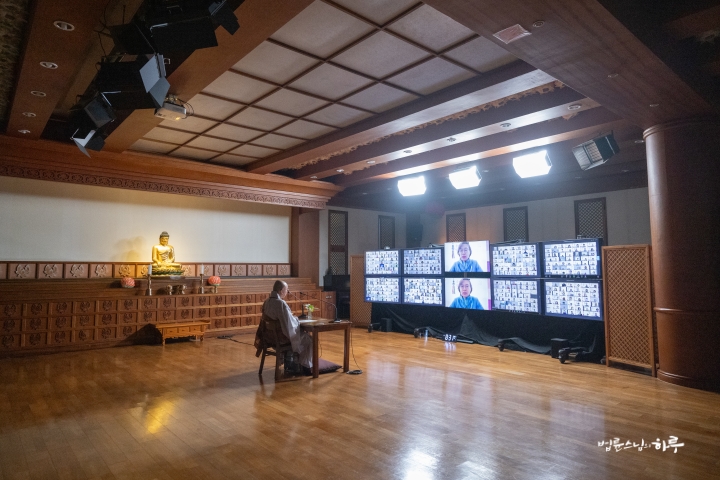
Anyone could press the raise hand button and share their reflections on the past year.
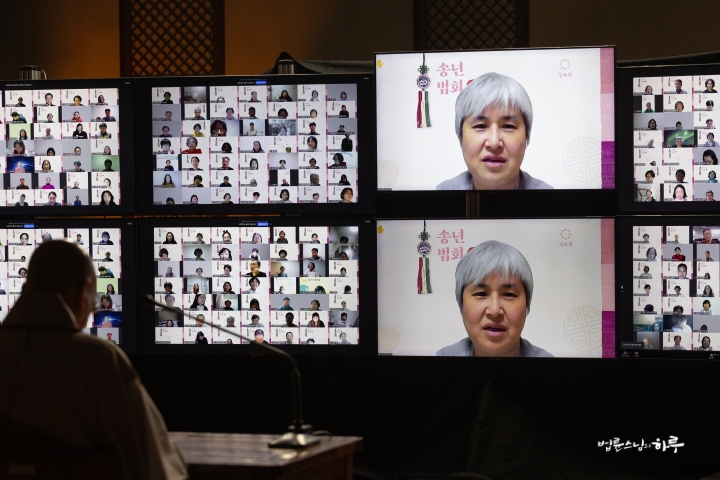
Among the reflections, there was a story from someone battling cancer, and questions about what individuals should do in these turbulent times. After listening attentively to the members’ reflections, Sunim provided some concluding remarks.
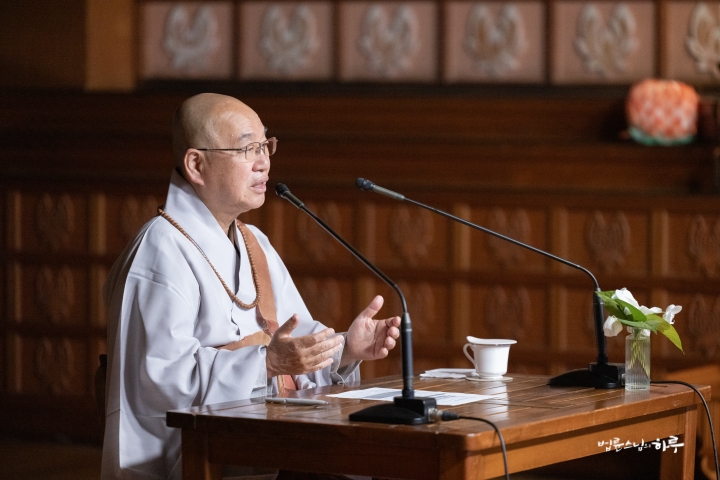
“The Buddha taught that when a person is born, they inevitably grow old, become ill, and eventually die. When we look at aging, illness, and death from an individual perspective, they appear as suffering. However, from a universal perspective where all life on Earth experiences these, they are simply part of change. When viewed in a short timeframe and narrow space, they seem like big problems, but when seen over a long time and broad space, they are not significant. It’s like looking at waves in the ocean – each wave seems to arise and disappear, but when you look at the vast ocean, you see that it’s not about arising and disappearing, but just water moving. This is the meaning of ‘form is emptiness, emptiness is form’ that we learn in the Heart Sutra. At first glance, there seems to be birth and death, but upon closer inspection, there is neither birth nor death.
If you live your life without losing this perspective of practice, whatever happens to you, instead of fearing or avoiding it, accept it as part of life and face it directly, and it will all be manageable. I hope that in the new year, you all will live your lives more confidently with this perspective of practice. The Buddha said, ‘The Tathagata has no fear’ no matter what happens. We still feel fear in our hearts when various things happen. But if we used to be greatly afraid, now we are only a little afraid, and moving forward step by step towards having no fear is the life of a practitioner.
The DNA of Democracy Passed Down to Us by Our Ancestors Who Shed Their Blood
Following the teachings of our ancestors, we held the June 13th Mass Dharma Assembly for the continuous development and prosperity of the Republic of Korea. Until recently, Korea was in a crisis where it was more likely to be on a downward path rather than prospering. Tensions between North and South Korea were escalating to the point where war could break out at any time, and domestic politics were so conflicted that civil war seemed possible. The people were in despair, and the youth were in even greater despair. On top of that, the sudden December 3rd coup d’état plunged the country into a state of emergency. It wasn’t that the president declared martial law because of a national emergency; rather, the president’s declaration of martial law itself caused the national emergency.
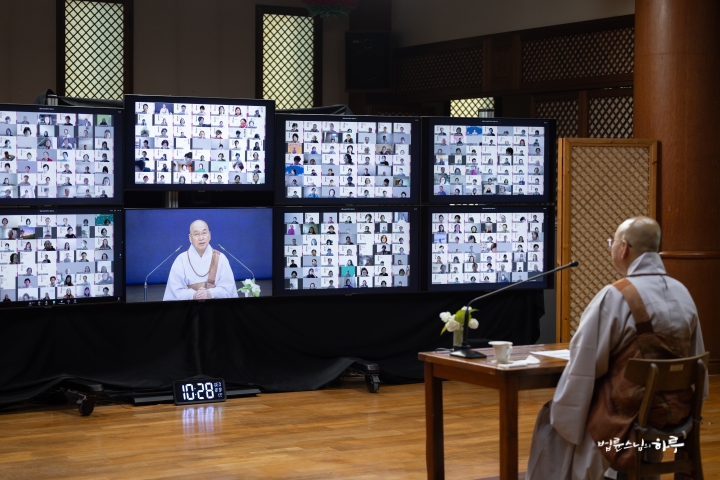
While it’s unfortunate that an event damaging to democracy occurred, when such things happen, our citizens gather in Yeouido from all over the country to protect democracy and the nation. People called for democracy in every corner of the country. Especially, many young people in their 20s came out to the streets and turned what could have been a grim protest into a K-pop festival atmosphere. The national emergency has become an opportunity to inspire hope and courage in young people. And in the international community, Korea’s protest culture is being reported in foreign media as playing a leading role in a new democratic movement. While various governments are issuing notices warning that it’s dangerous to travel to Korea due to the difficulties caused by the declaration and lifting of martial law and the National Assembly’s passage of the impeachment motion against the president, individual YouTubers are actually promoting, “Come to Korea now. You can have an amazing experience,” causing many young foreigners to flock to Korea to experience the protest culture as if they were coming to watch a K-pop concert. This somewhat amusing situation is currently unfolding.
When martial law was declared, while the elderly perspective was “We don’t know what might happen, let’s quickly go home!”, young people rushed out saying “Let’s quickly go to Yeouido!” Seeing this, I thought that another new opportunity has come to the Republic of Korea. When the Donghak Peasant Revolution broke out during a time when the country was so difficult that people were starving to death, it was brutally suppressed due to foreign intervention, and on that foundation, we lost our country to Japan. Even in such circumstances, our ancestors launched the March 1st Movement, a peaceful resistance movement that shines in human history. Although we suffered severe hardships due to the failure of the March 1st Movement, we eventually gained independence. But to make matters worse, we were soon divided into North and South Korea. Despite this, the Republic of Korea has overcome these challenges and achieved economic growth and developed democracy. This resilience remains with us today. In other words, while we have the instability factor of martial law that could be suddenly imposed at any moment due to the “Korea risk” of North-South division and hostility, we also have the strength to overcome such crises in a short time.
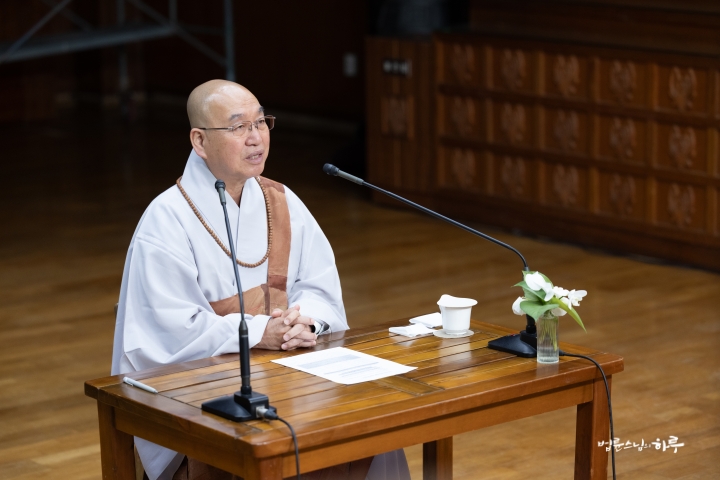
This can be seen as evidence that the DNA of the independence and democratization movements, which our ancestors and predecessors fought for throughout our long history, remains in our bodies. While adults may have thought that young people seemed hopeless, when martial law was declared, we saw young people taking to the streets. This made us think that we could place our hope in the younger generation. In this respect, it can be considered a blessing in disguise.
A New Year’s Resolution: Turn Manure into Fertilizer in Life!
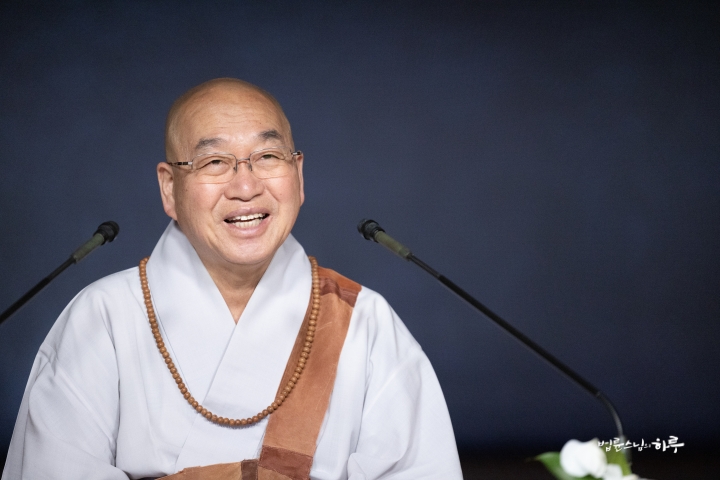
Perhaps this situation could lead to some form of international cooperation for peace on the Korean Peninsula next year. Domestically, it could result in a constitutional amendment that allows for collaborative governance and a new democratic order through the decentralization of power. If this leads to the establishment of a new democratic government ushering in the 7th Republic, it would mean the realization of what we’ve been dreaming of. If this happens, the Yoon Suk-yeol administration, despite its mistakes, would have played a role in advancing history. In Buddhist terms, this is called a ‘reverse bodhisattva.’ We generally consider a bodhisattva to be someone who inspires others through exemplary actions. However, when someone shows us how not to behave, allowing us to prevent future calamities, we call them a reverse bodhisattva. Therefore, instead of hating such people, we should turn the situation into an opportunity for good fortune arising from misfortune. It’s because of those who make mistakes that we can create opportunities for historical progress. Turning manure into fertilizer is a revolution in life and in practice. In the new year, I hope we can create a new culture that develops our country, just as we grow crops by turning the manure discarded by those above us into fertilizer.”
After Sunim’s dharma talk, each branch proceeded with their year-end gathering programs.
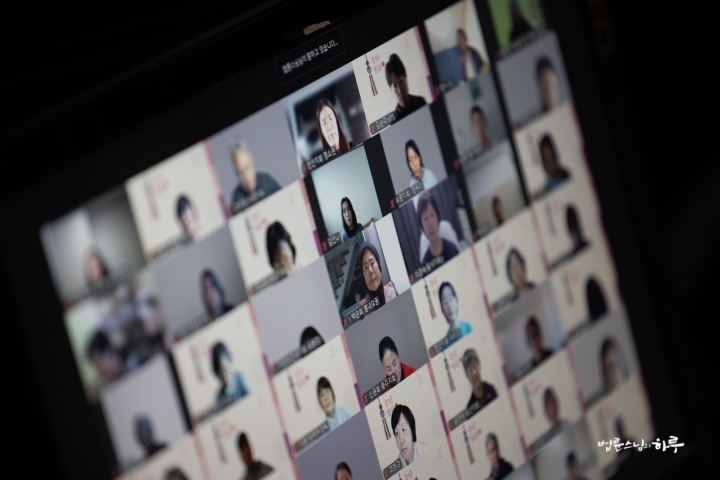
It was a time to reflect on how we, as practitioners, should look back on the past year and welcome the new year. After concluding the Dharma assembly with the Four Great Vows, Sunim wrapped up the day’s schedule.
Tomorrow, Sunim will have an early breakfast meeting with North Korea experts, then move to Gyeongju. He plans to attend a two-day year-end workshop with researchers from the Peace Foundation.




